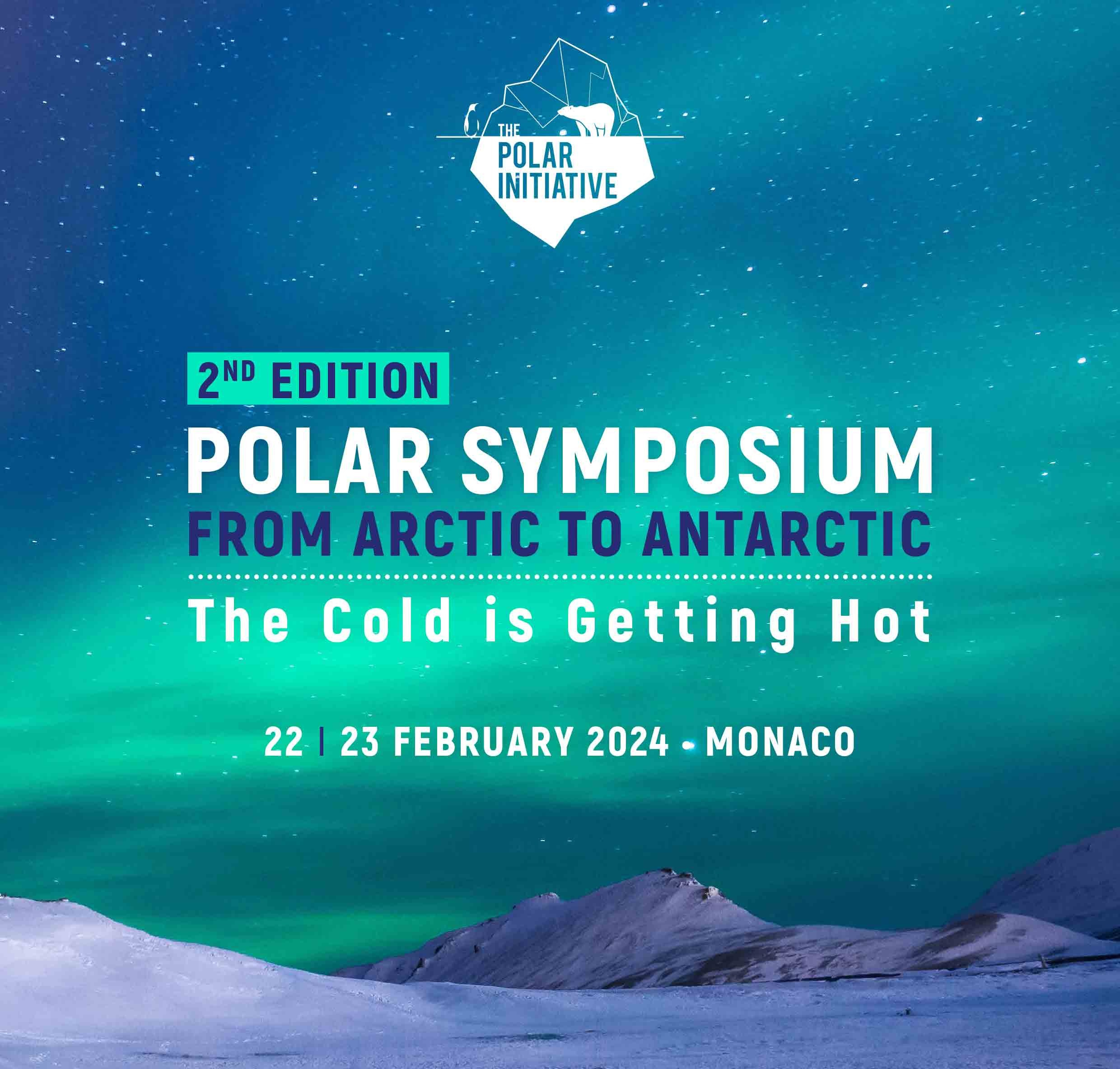
As part of the IASC-PA2F Fellowship, Elena Adasheva participated in the Polar Symposium 2024, From Arctic to Antarctic: The Cold is Getting Hot!, which took place on 22-23 February in Monaco:
The Symposium was organized by the Prince Albert II of Monaco Foundation with the Scientific Committee on Antarctic Research (SCAR) and the International Arctic Science Committee (IASC) as co-conveners, in collaboration with the Oceanographic Institute of Monaco — the Prince Albert I Foundation, the Scientific Center of Monaco, the European Polar Board, and the World Economic Forum. The second edition of the Symposium, following the 2022 launch of the Polar Initiative, convened nearly 120 polar scientists, early career researchers, Indigenous leaders, and NGO representatives. Two days of the Polar Symposium featured a series of speeches and presentations.
I shared a summary of the Symposium presentations on the Polar Research and Education Library’s blog. Here are the key takeaways:
- Emphasis on the vital role polar regions play in maintaining environmental balance and addressing the global impact on the Poles.
- Unity and coordination between the Arctic and Antarctic communities
- International cooperation to address rapid climate changes and geopolitical scenarios, alongside alignment of Indigenous, local, and scientific knowledge.
- Investment in ECRs to address the crisis in the Poles effectively.
- The importance of protecting Indigenous Peoples and their inclusion in decision-making processes; integration of Indigenous knowledge into scientific research.
- Close interactions between scientists and policymakers; the need for increased investment in polar science; the importance of science in informing decision-makers.
- Collaboration for addressing technological challenges and utilizing new technologies, coordinating observations, and aligning research infrastructure.
- Fundraising and educating the public about the Arctic and Antarctic; promotion of polar science across diverse disciplines and regions.
- Emphasis on the importance of dialogue among polar scientific communities, the inclusion of Indigenous and local communities, engagement with the private sector, and the necessity for a new generation of polar researchers.
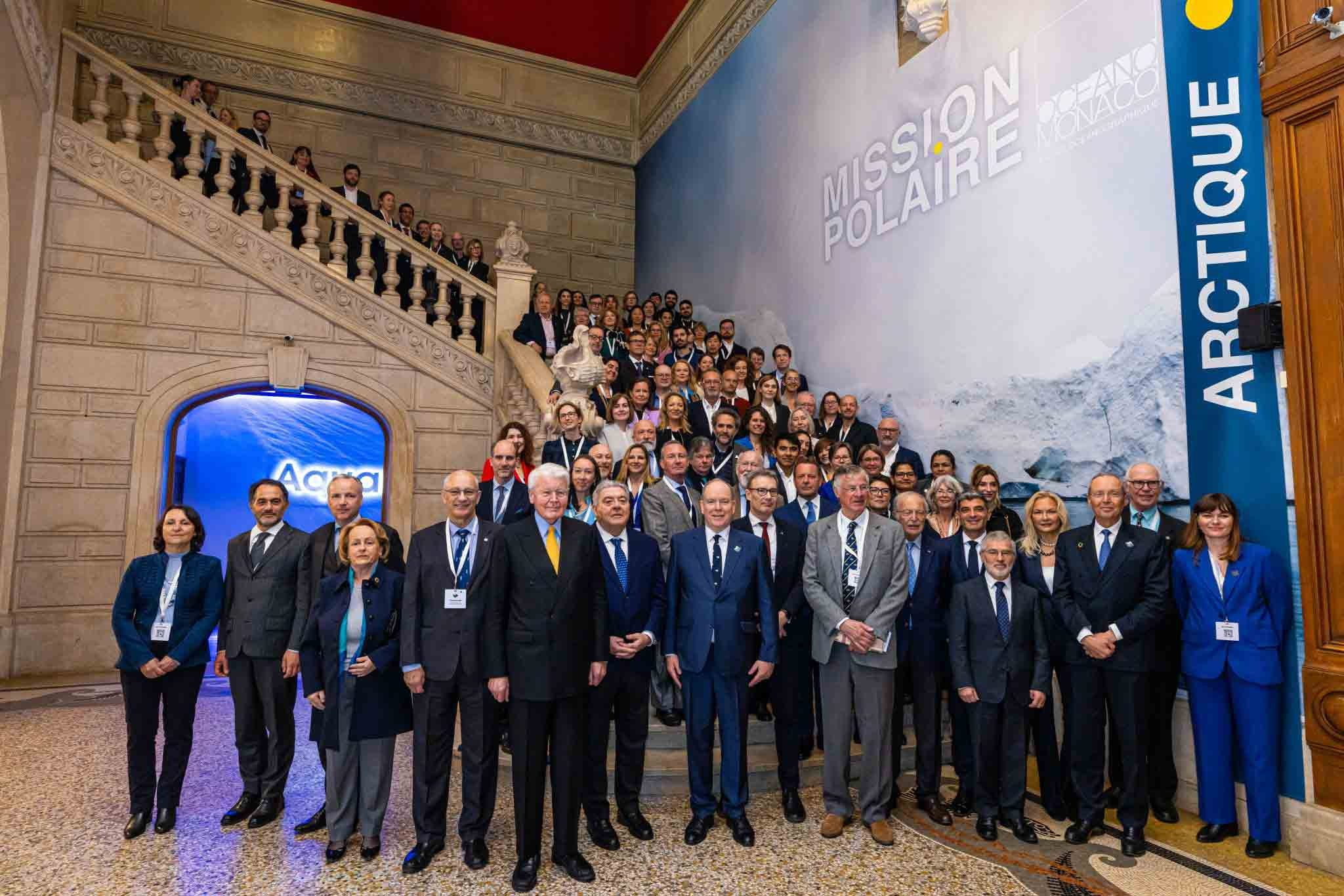
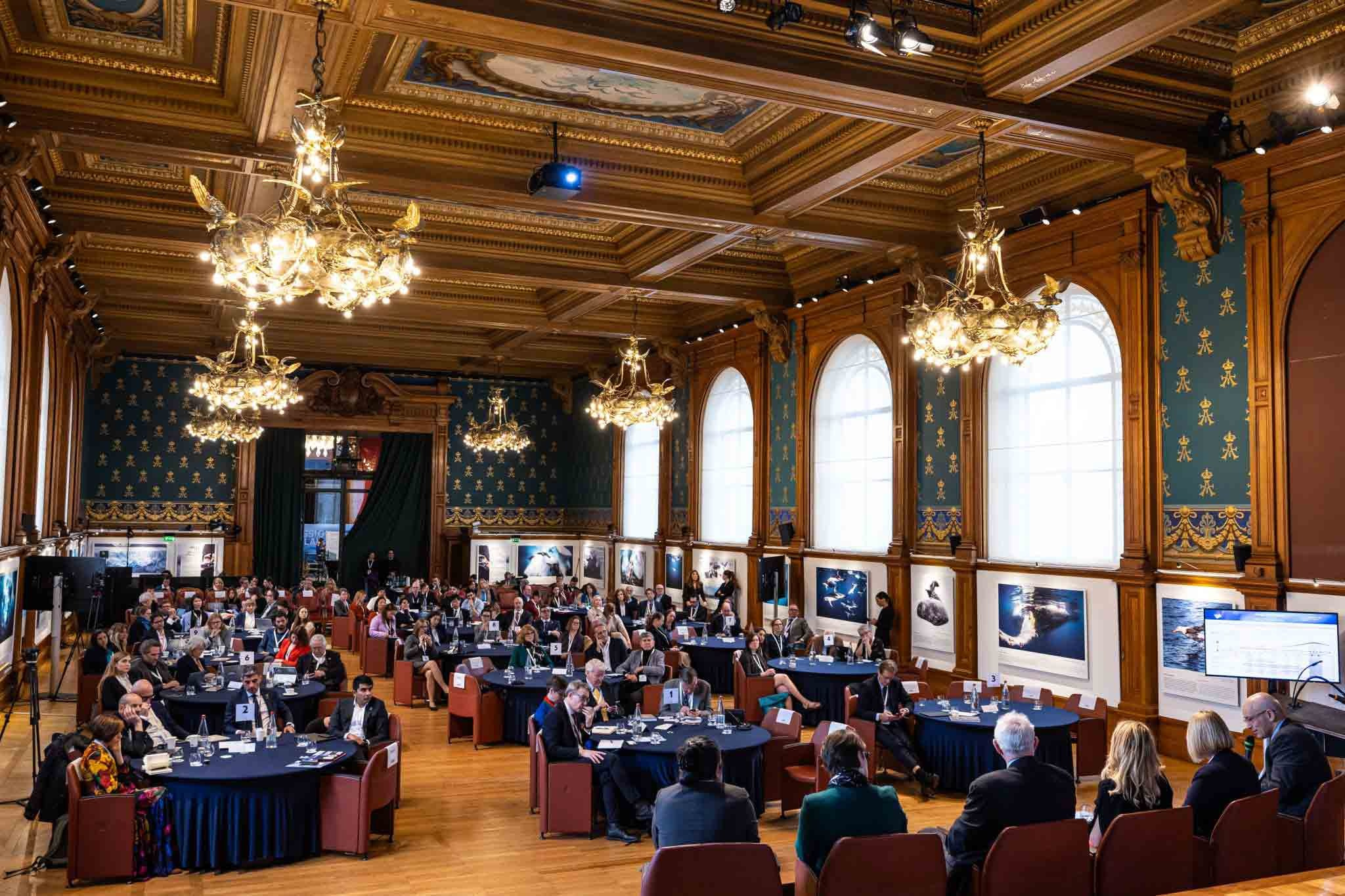
At the Symposium, two SCAR-PA2F fellows and four IASC-PA2F fellows received awards from His Serene Highness Prince Albert II of Monaco. At the award ceremony, I had the opportunity to meet H.S.H Prince Albert II of Monaco; Henry Burgess, President, International Arctic Science Committee (IASC); and Jefferson Cardia Simões, Vice President for Finance, Scientific Committee on Antarctic Research (SCAR).
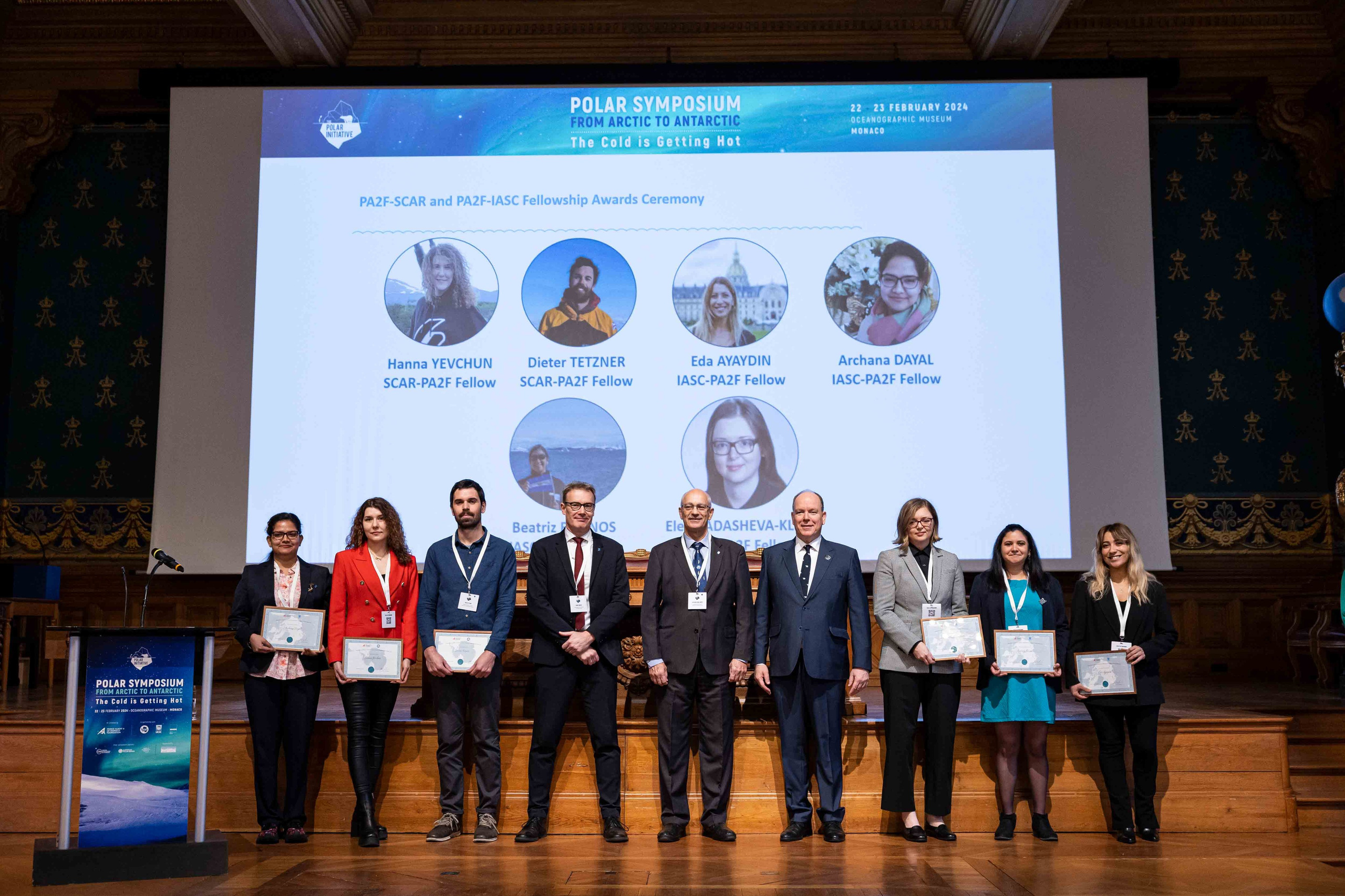
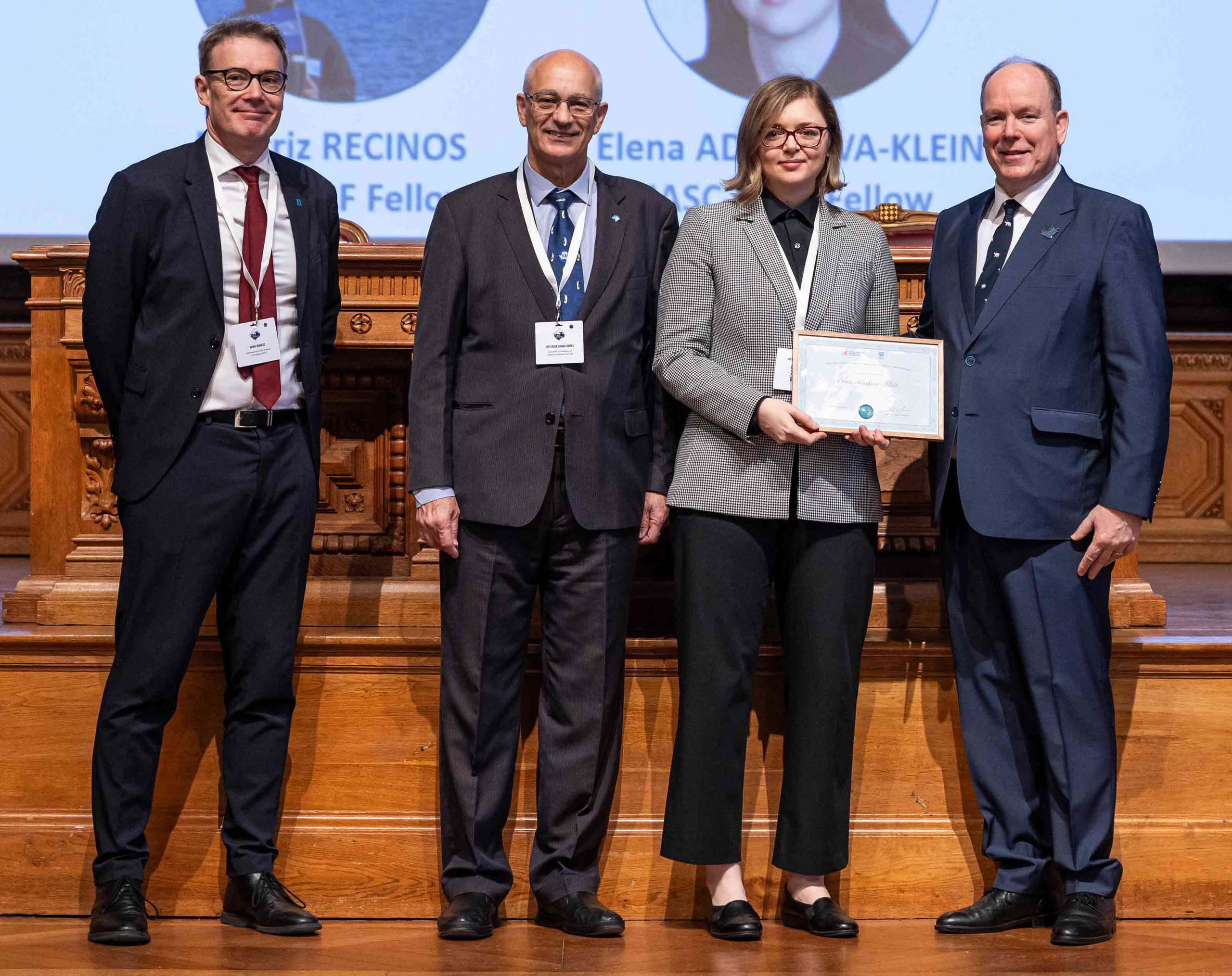
The symposium included two workshops designed for participants to brainstorm ideas and share recommendations on the following topics:
- The first day featured Workshop 1, co-organized with the European Polar Board, which focused on the question: How Can Long-Term Initiatives Collaboratively Shape the Next Decade? Connecting, Relating, and Defining Common Priorities for Polar Research and Policy.
- On the second day, Workshop 2, co-organized with the World Economic Forum, was titled: Can we shape effective strategies and actions for the protection of Polar ecosystems? Responding to emerging challenges in biodiversity, human activities, and climate regulation.
Each workshop included several working groups focusing on specific sub-topics. Early career researchers were assigned the role of rapporteur for these workshops. We took detailed notes during the brainstorming sessions and then summarized them into bullet points. We presented our summaries to all attendees at the Symposium. After the Symposium, we compiled detailed summaries of the discussions.
At the workshops, I acted as a rapporteur and presenter for two working groups:
- Workshop 1, Topic 2: Ensuring equitable participations for all stakeholders. Facilitators: Bridget Larocque, Malgorzata Smieszek
- Workshop 2, Topic 2: Local communities, human activities, and tourism. Facilitator: Mads Frederiksen
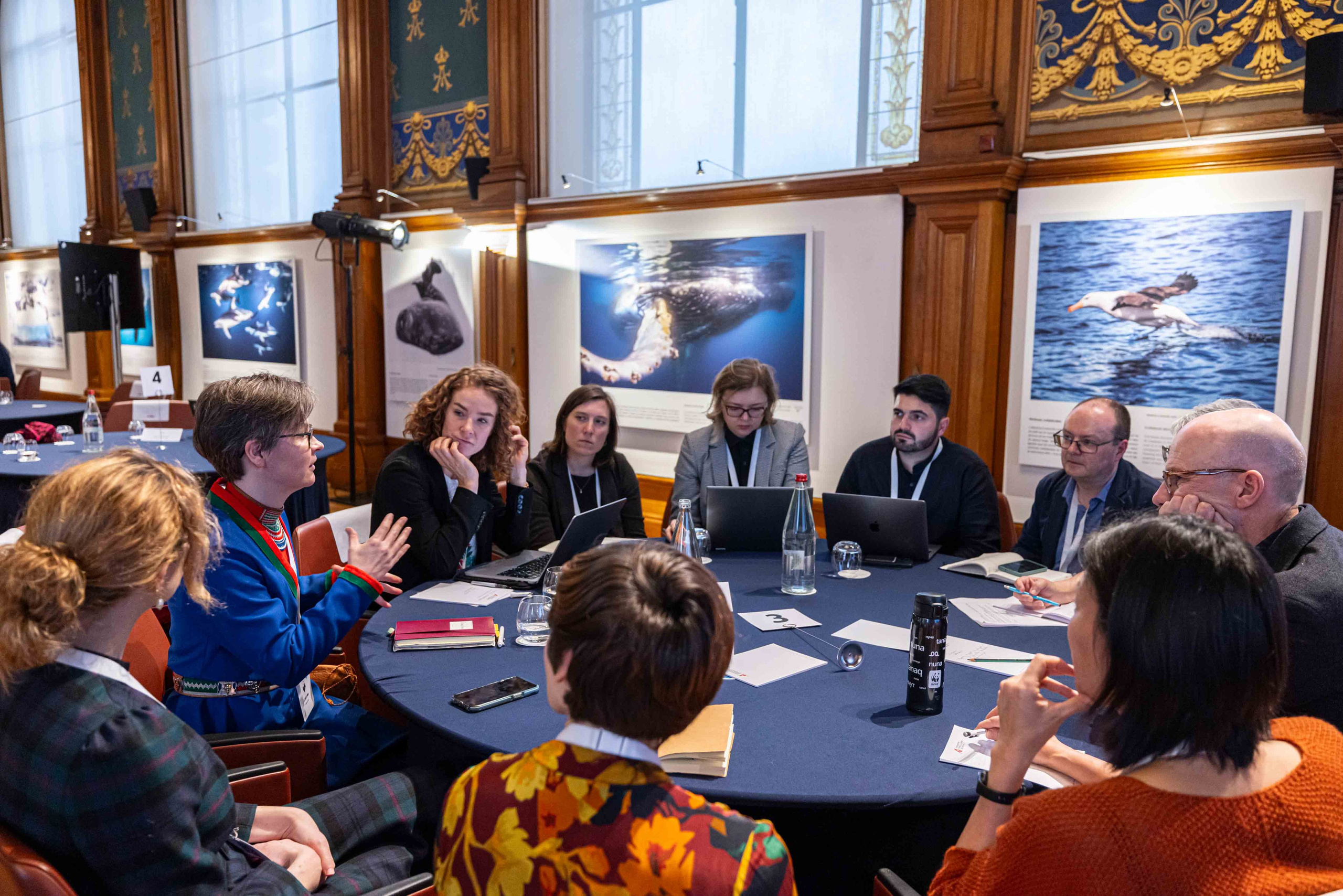
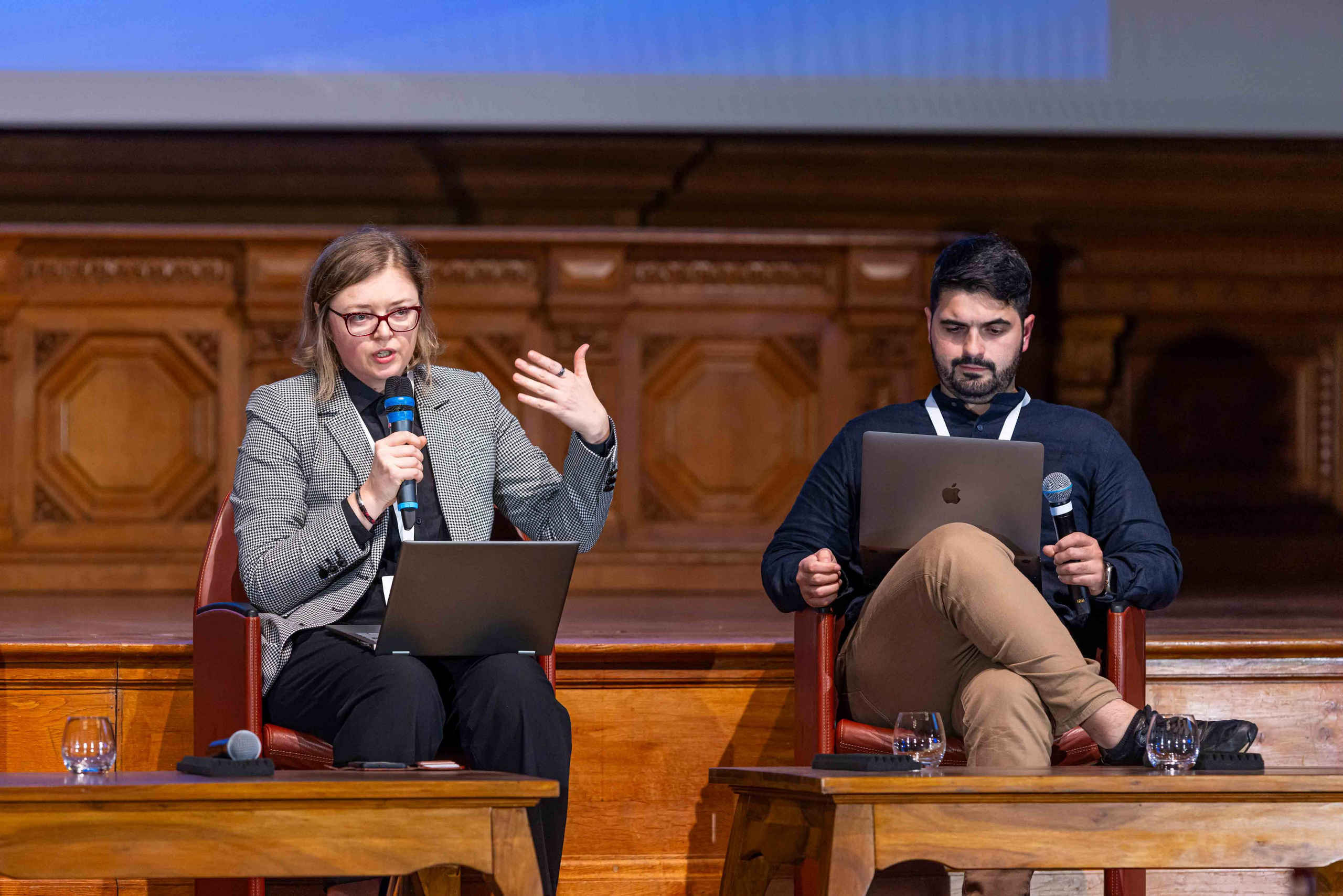
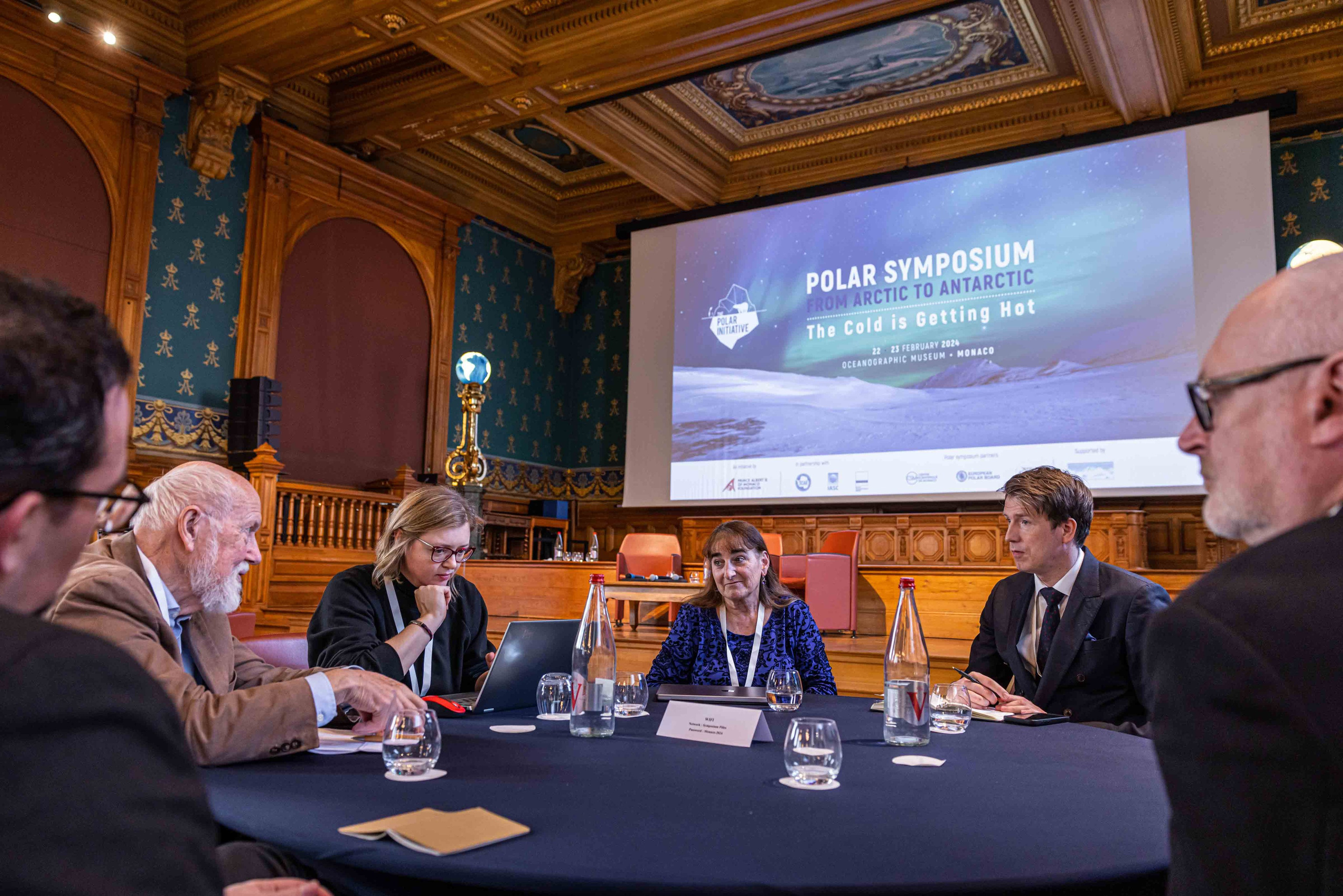
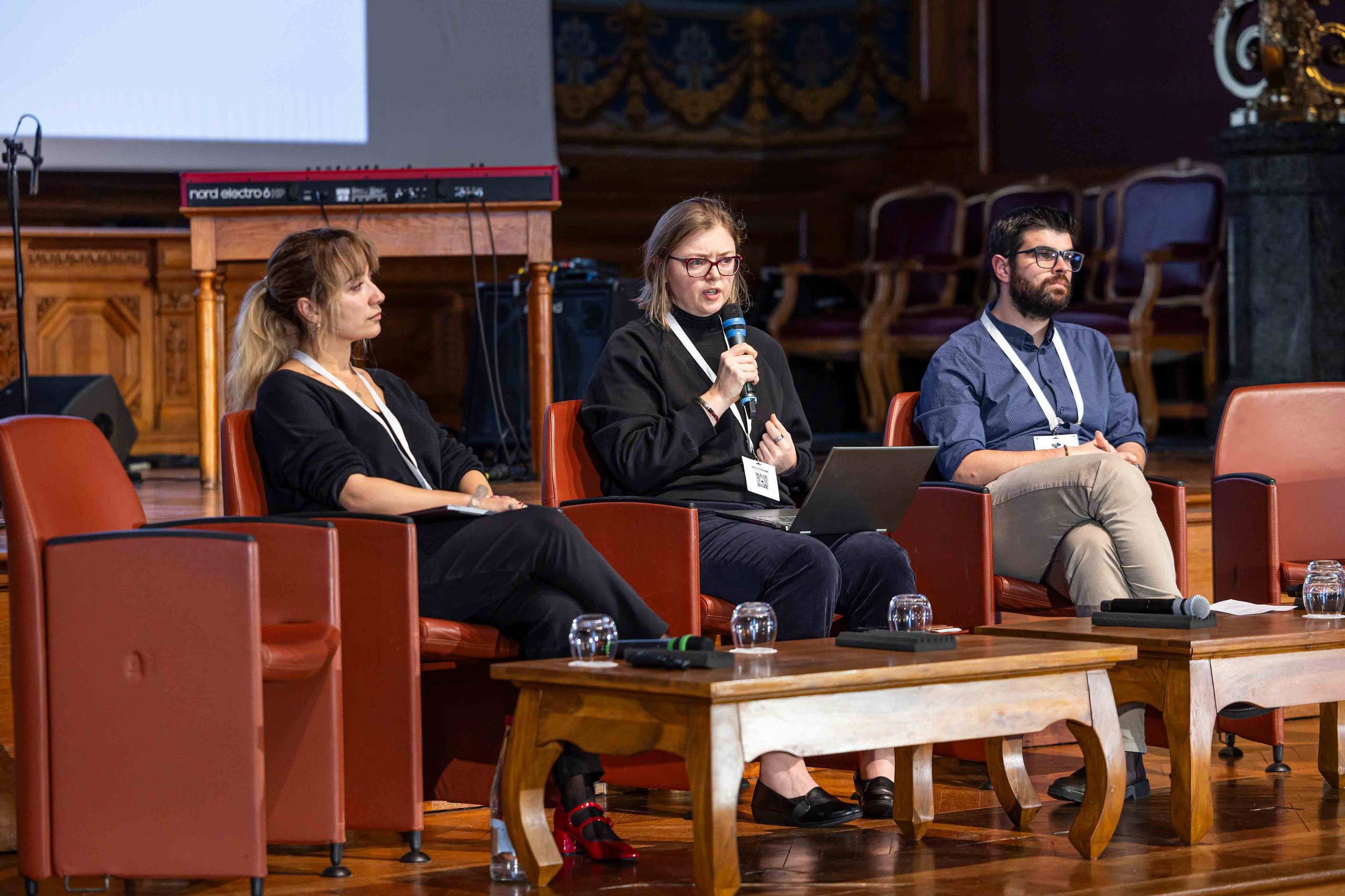
According to organizers, our input and shared reports were essential to the long-term success of the Symposium. Based on our contributions, the organizers compiled a summary booklet outlining the main outcomes of the workshops and later on will develop a roadmap for actionable recommendations on the topics discussed. The booklet and official summaries of the workshops are published on the Polar Initiative website. Many thanks to the Prince Albert II of Monaco Foundation for the opportunity.
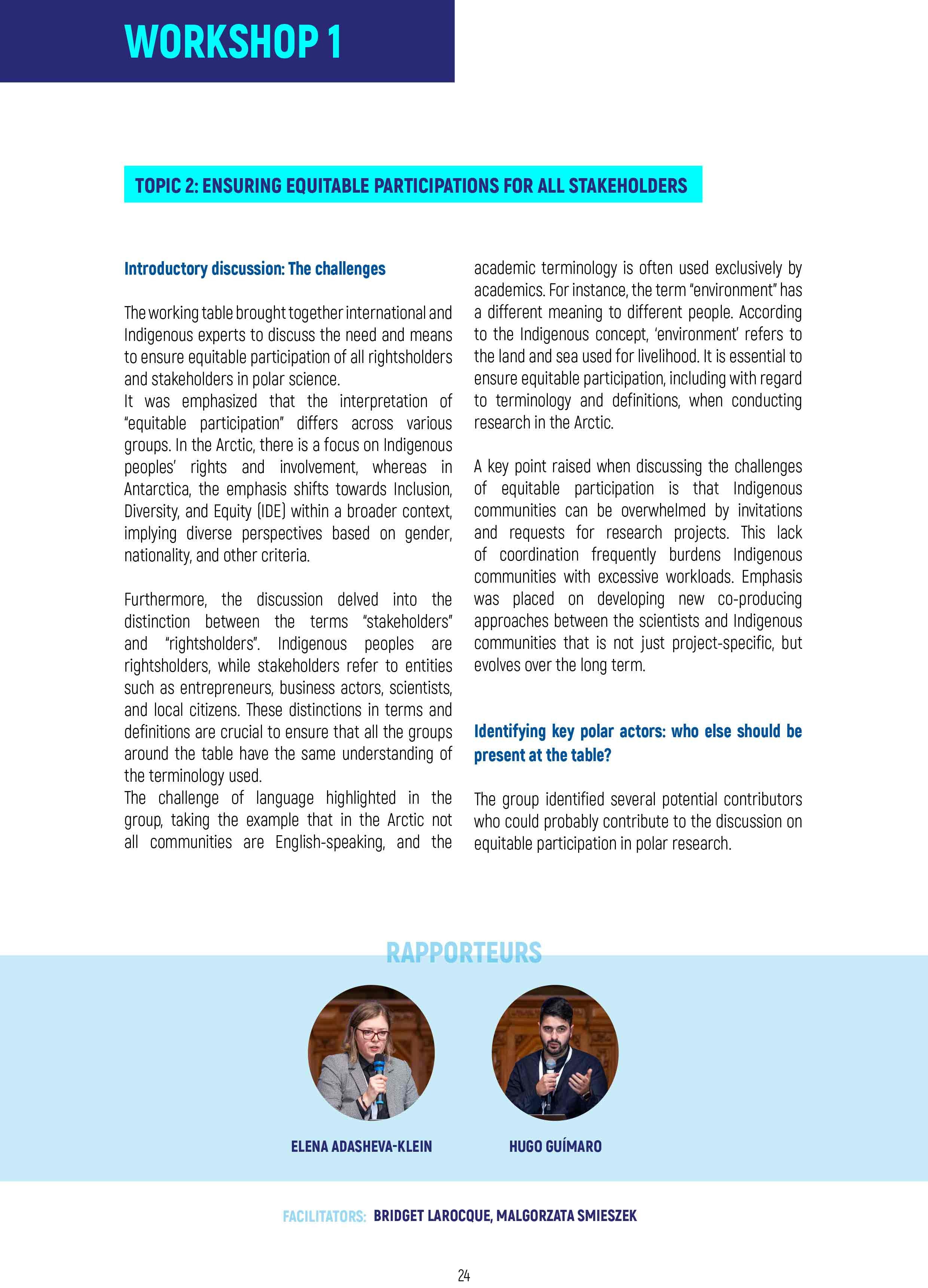
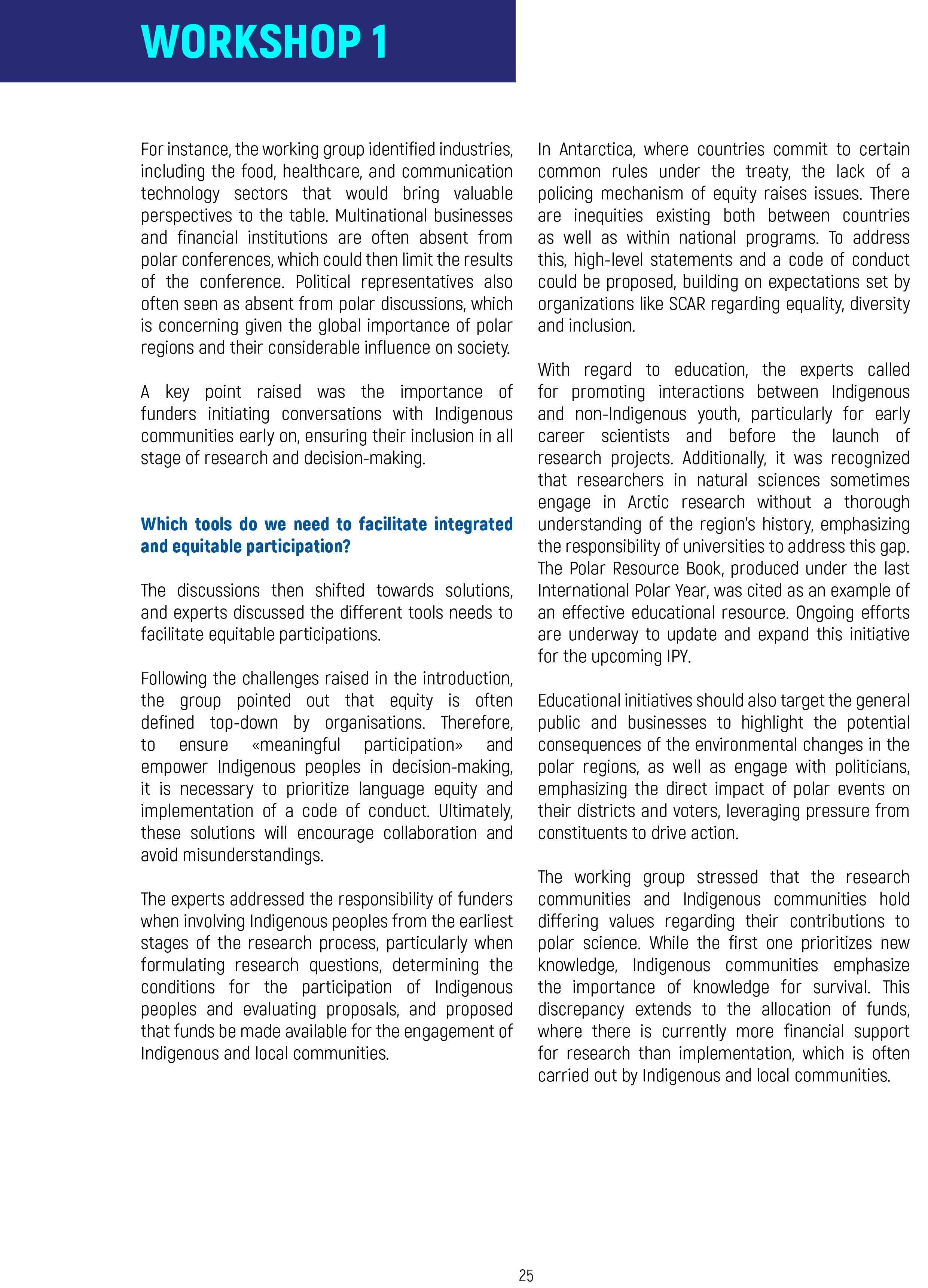
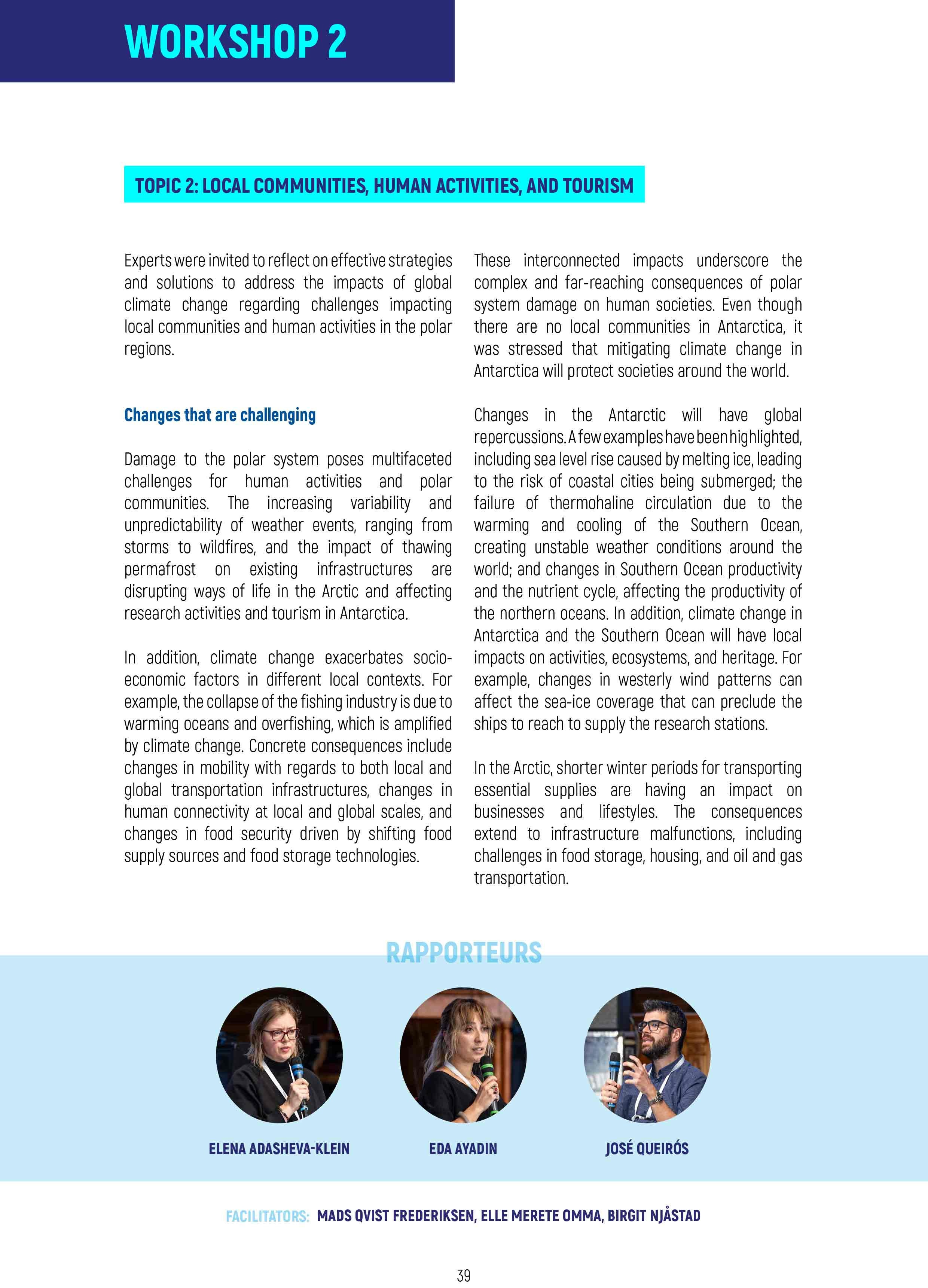
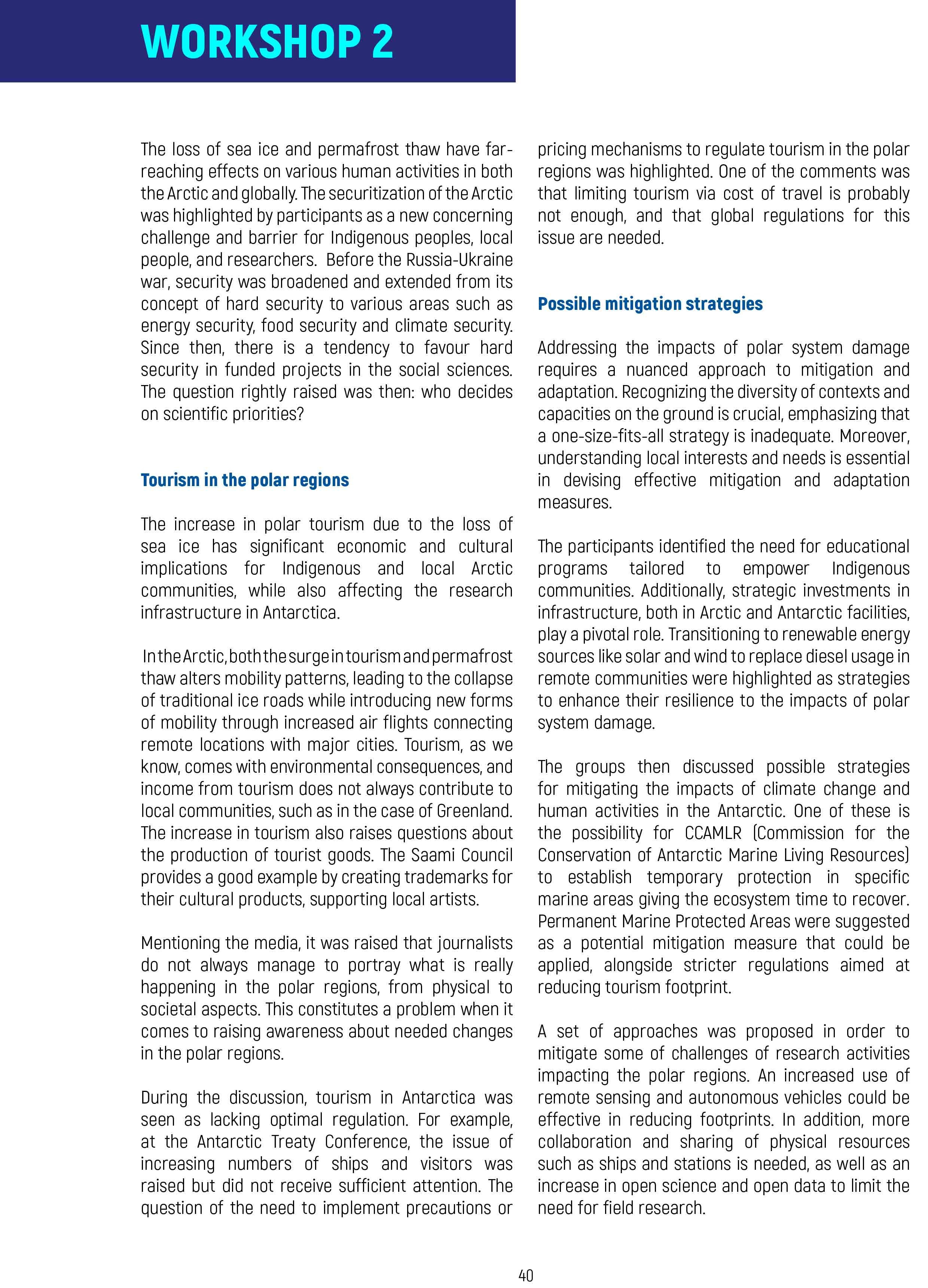
Photo: Philippe Fitte/FPA2
Publication: Summaries of the Polar Symposium, Recordings of Day 1 and Day 2.


